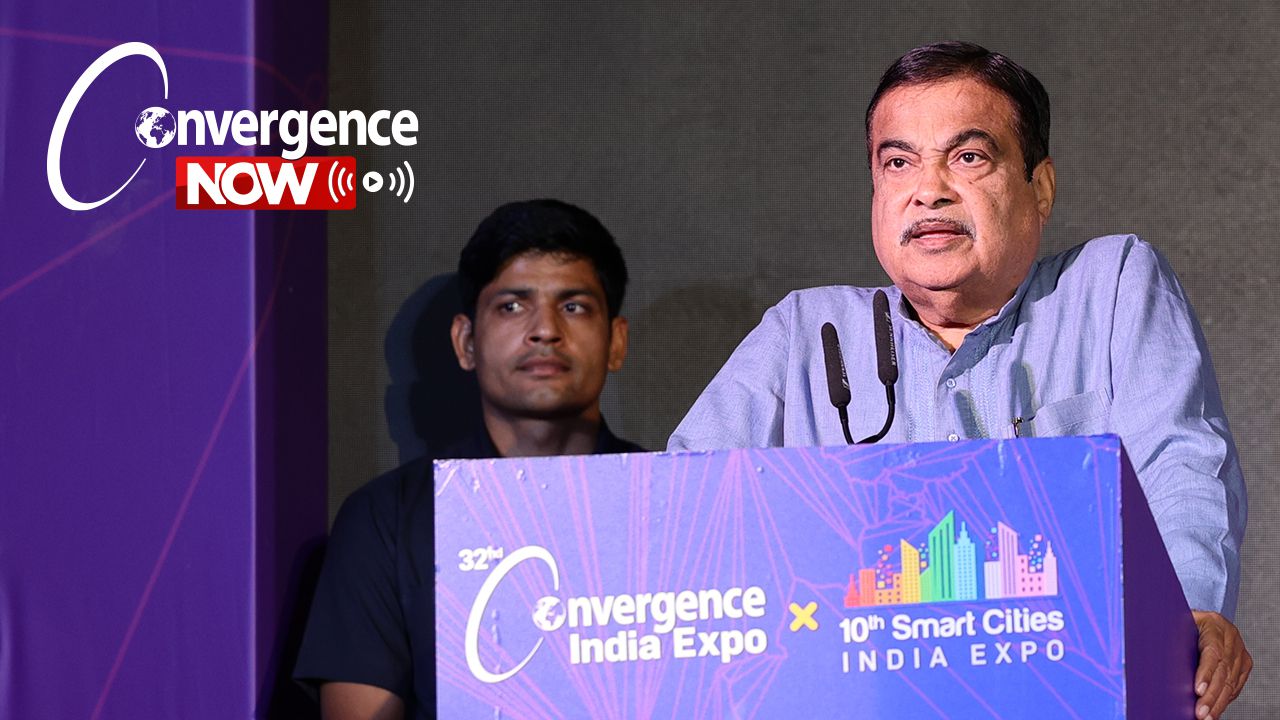India's smart mobility landscape is experiencing significant growth, fueled by the optimism surrounding its increasing green energy capacity and the push for domestic EV batteries. In his opening address at the Convergence India Expo 2025 at Bharat Mandapam, Mr. Nitin Gadkari, Minister of Road Transport and Highways, expressed his optimism, stating, “In our power basket, more than 42% of our power is green power today. So, electricity as a power is abundantly available in India."
As per the Ministry of Power, Government of India, renewable energy sources, including solar, wind, hydro, and biomass, account for over 46% of the nation's total power capacity, making it the third largest renewable energy producer in the world. Additionally, the government of India in the Budget 2025-26 has announced the removal of basic customs duties on EV battery components to boost its domestic manufacturing, giving the EV segment a much-needed push.
His statement underlines India’s growing potential to transform its mobility landscape with AI-powered traffic management, electric public transportation, and connected vehicle systems. These technologies will lead to a cost-effective and futuristic revolution in India’s mobility landscape.
Growing Green Energy Component
Since energy is the core of modern-day technological advancements, it forms the core of the smart mobility segment too. Without energy or power, it all becomes redundant. In such a case, growing green energy holds the key to deep technology integration across the sector. As the green energy component continues to rise, it will significantly reduce the pollution level in our cities. It will push forward a sustainable approach across the segment, right from the source to the end user.
Eventually, it will guide the nation towards a cleaner and healthier environment without compelling it to compromise on its developmental plans.
Deeper Penetration of EVs
Boosting domestic manufacturing of EV batteries will make EVs affordable for the masses, leading to higher penetration in the coming times. Enabling domestic manufacturing would also push Indian innovators to derive India-specific innovations, leading to better and futuristic solutions. It will empower the domestic EV industry to optimize the cost and after-sales services of the EV battery industry.
Read what Shri Abhishek Singh IAS, MeitY's Additional Secretary, said at CISCI 2025 at: "India Must Build a Voice-Enabled LLM Tailored to Our Needs” – Abhishek Singh IAS at 32nd Convergence India Expo’25
This will eventually push EV adoption in our nation, enabling a major component of smart mobility on the roads.
Revolution in the Public Sector
Increasing focus on clean and green energy will help the public transport system, whether electric buses, metros, RRTS, or even autorickshaws, to realize the full potential of India’s rich and abundant geographical advantage. Powered by green energy, electric rickshaws and gigantic metros can revolutionize India’s mobility landscape with a cost-effective and environmentally friendly alternative. These will eventually empower the aspirations of the Indian masses through an integrated system.
Pushing the development of EV infrastructure in the nation, including the push for domestic manufacturing of EV batteries, would lead to easy customization of battery size and charging capacity as needed to support public transportation modalities like buses. For instance, Nagpur’s flash-charging-based electric articulated bus system, which even Shri Nitin Gadkari ji mentioned in his speech.
Furthering Innovations in the Sector
The Nagpur project includes overhead flash chargers that enable the articulated buses to receive a full charge in 15 seconds at bus stops, a significant improvement over traditional depot charging systems that require extensive downtime. This technology allows for the continuous operation of buses throughout the day, eliminating the need for long charging periods at depots. This results in increased efficiency and reduced operational costs for public transportation systems.
32nd Convergence India Expo and Smart Mobility India Expo
The 32nd Convergence India Expo, co-located Smart Mobility India Expo, held at Bharat Mandapam, New Delhi, emerged as a pivotal platform for shaping India's tech-driven future. Convergence India facilitated over 45 conference sessions, bringing together industry leaders, innovators, and ministry representatives to discuss emerging technologies and market trends.
The Smart Mobility India Expo, co-located with Convergence India, highlighted innovative solutions in passenger mobility, parking automation, EV infrastructure, and integrated command centers.
Both expos fostered groundbreaking discussions and high-value business deals, reinforcing their status as premier hubs for networking and knowledge exchange.




